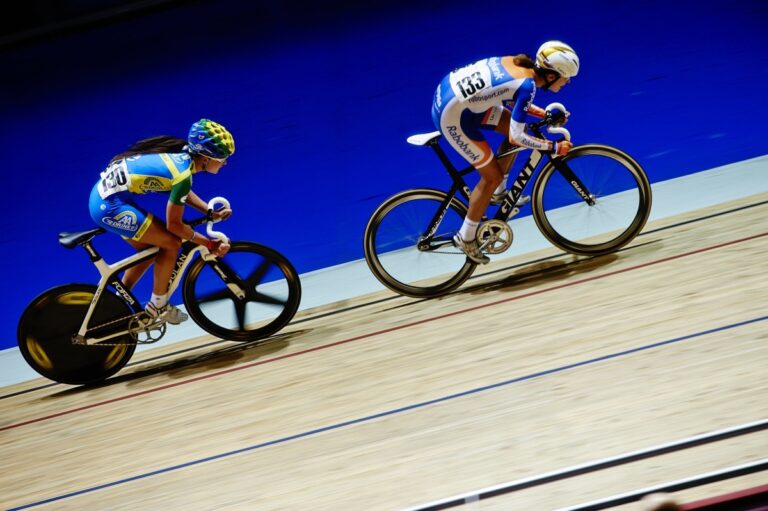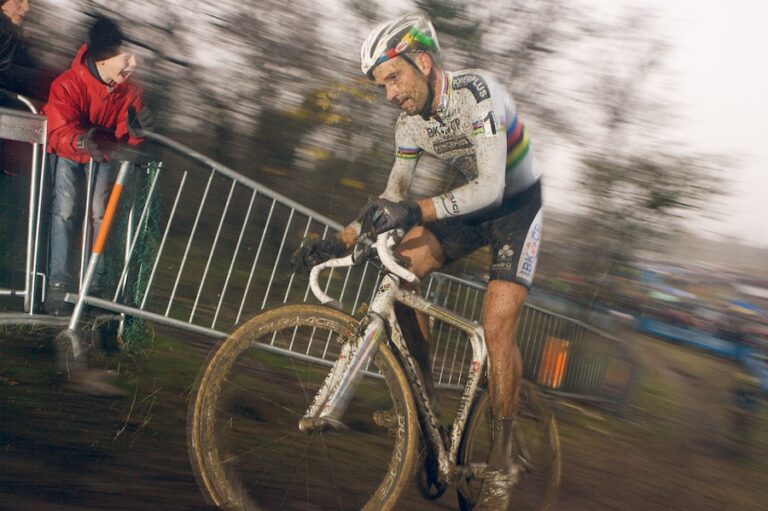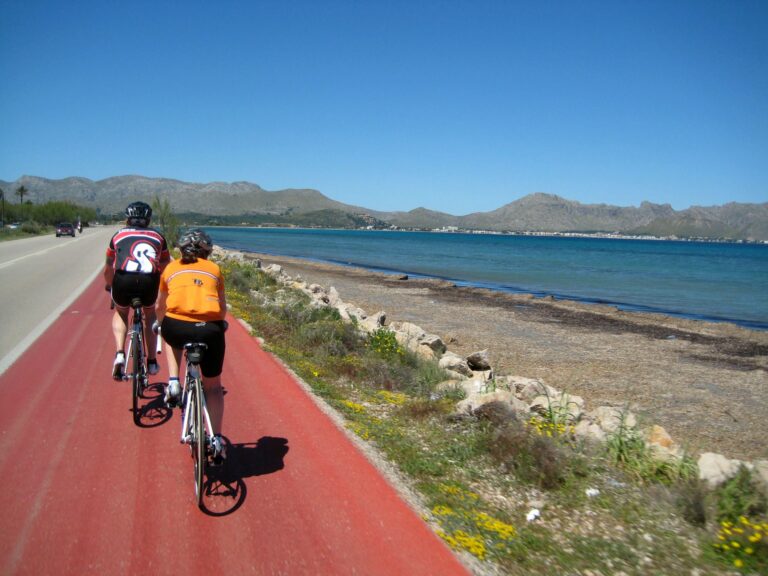You’ll have noticed the stunning images that illustrate our coverage of the UCI Cyclo-Cross World Cup.
Balint Hamvas is the photographer, and has made the frequently muddy, occasionally sandy, and always demanding world of ‘cross racing his specialty. We’ll soon be offering you a chance to win his beautiful coffee table book, CYCLOCROSS 2011/12, and so took an opportunity to give you an insight into the man behind the lens.
His affection for the discipline was sealed during his first encounter with it, at a World Cup race in Tabor in 2008. A former mountain biker who united his twin interests in cycling and photography when injury forced him to skip the national championships, he admits that before his trip to the Czech Republic, ‘cross wasn’t on his radar. The effect was dramatic: one he compares to meeting a soul mate. “I loved cyclo-cross straight away,” he says.
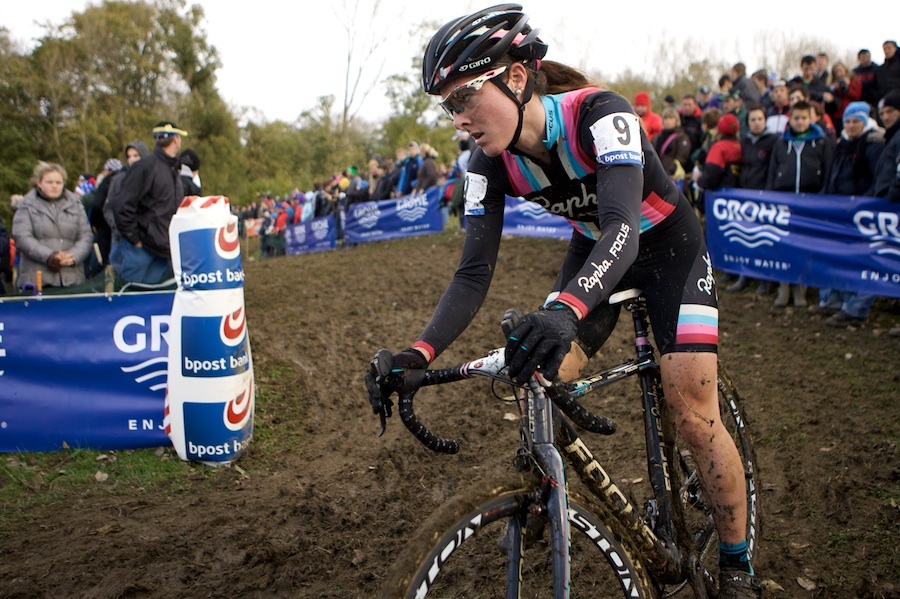
“As time progressed, I tried to figure out what I loved so much about it and I think it all comes down to intensity. It’s a 60-minute effort. There is no holding back, no sitting on other people’s wheels: it’s a flat out, mad dash to the finish line.
“Plus, these guys are among the best bike handlers in the world. My jaw drops every single time I watch them ride through ankle-deep mud or shin-deep sand.
“It’s so hard – so incredibly hard.”
Hamvas’ work takes him around the world and he is well placed to document the different ‘cross cultures. Belgium remains the heartland of the discipline, but its popularity has risen steadily in the UK and dramatically in the USA. Hamvas has covered races in all three countries, and says the Anglo scene differs significantly from its Belgian incarnation, both in the seriousness with which it is regarded in the Low Countries, and the following it attracts. ‘Cross in Belgium, says Hamvas, is a blue collar sport. He identifies the popularity of individual riders as another key difference between the two scenes. “In Belgium, the spectators are clustered around certain riders; they form supporter clubs,” he says. The fanatical support involves following the rider to each and every race and dressing in “all sorts of paraphernalia” to show their support.
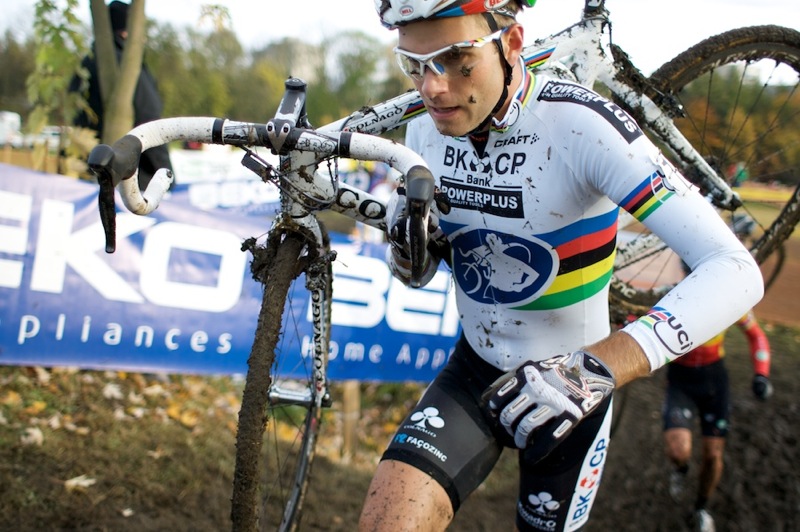
Images of professional cycling are largely focussed on the racing, but for fans of the sport, the behind-the-scenes action is equally fascinating. Hamvas’ work contains a significant share of “incidental shots”; those he says that help place pictures of the racing into context. He lists shots of the “hardcore fans” doggedly stationed at the edge of the course in the foulest weather, of mechanics working tirelessly to keep the bikes running in the face of heavy course conditions, and of the huge crowds clustered around the famed sandpits of Zonhoven among those that help to tell the story of the event, as well as record the outcome of the race.
Despite the growth in the popularity of cyclo-cross in the UK in recent years, Hamvas concedes that it remains a niche sport. “Don’t get me wrong,” he says. “I don’t mean to belittle the hard work of the riders and the organizers of all those races in every single weekend all over the country. Unfortunately, cross is not being taken particularly seriously by the powers that be, I guess it is the curse of not being an Olympic sport.”
He recalls an event earlier this year at which the stoicism of British fans proved a match even for those of Belgium. A London League race at Redbridge in September saw a resumption of the almost summer-long rain that abated only for the Olympics. “Over a hundred people lined up to race in hideous weather conditions – it was brilliant.”
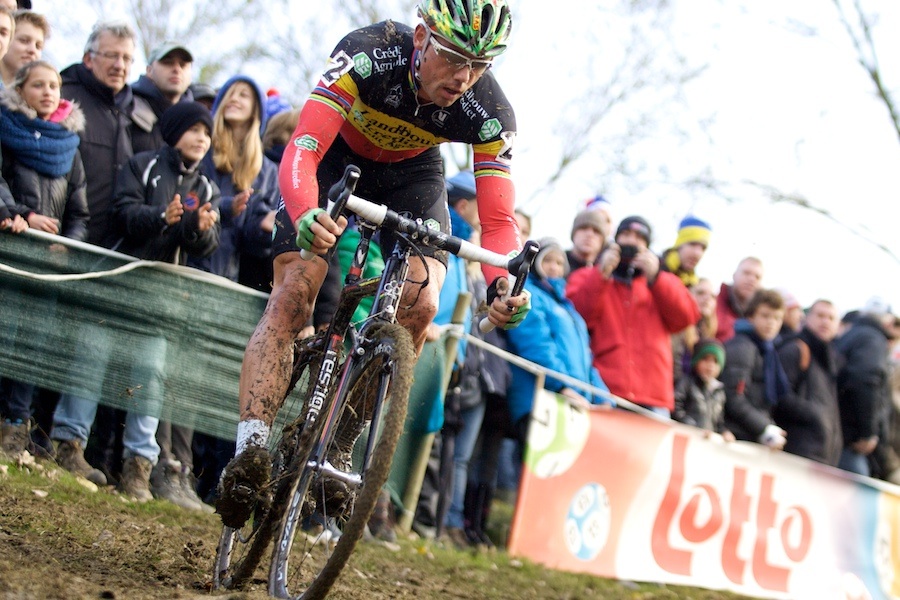
‘Cross is a discipline which almost by definition attracts talented bike riders. The current elite – Stybar, Nys, Albert, Meeusen and Kevin Pauwels – would perhaps command a place alongside the greats of the sport. Hamvas says separating the top five is a difficult task, so closely are they matched. Meeusen and Stybar’s willingness to “bunny hop over literally anything and everything” earns them an honourable mention, but after his race-winning performance at the Koppenbergcross, Hamvas opts for Nys. “His bike handling skills are truly incredible,” he says. “The speed he hit the last corner on Sunday was beyond imaginable and he still managed to pull it off.”


